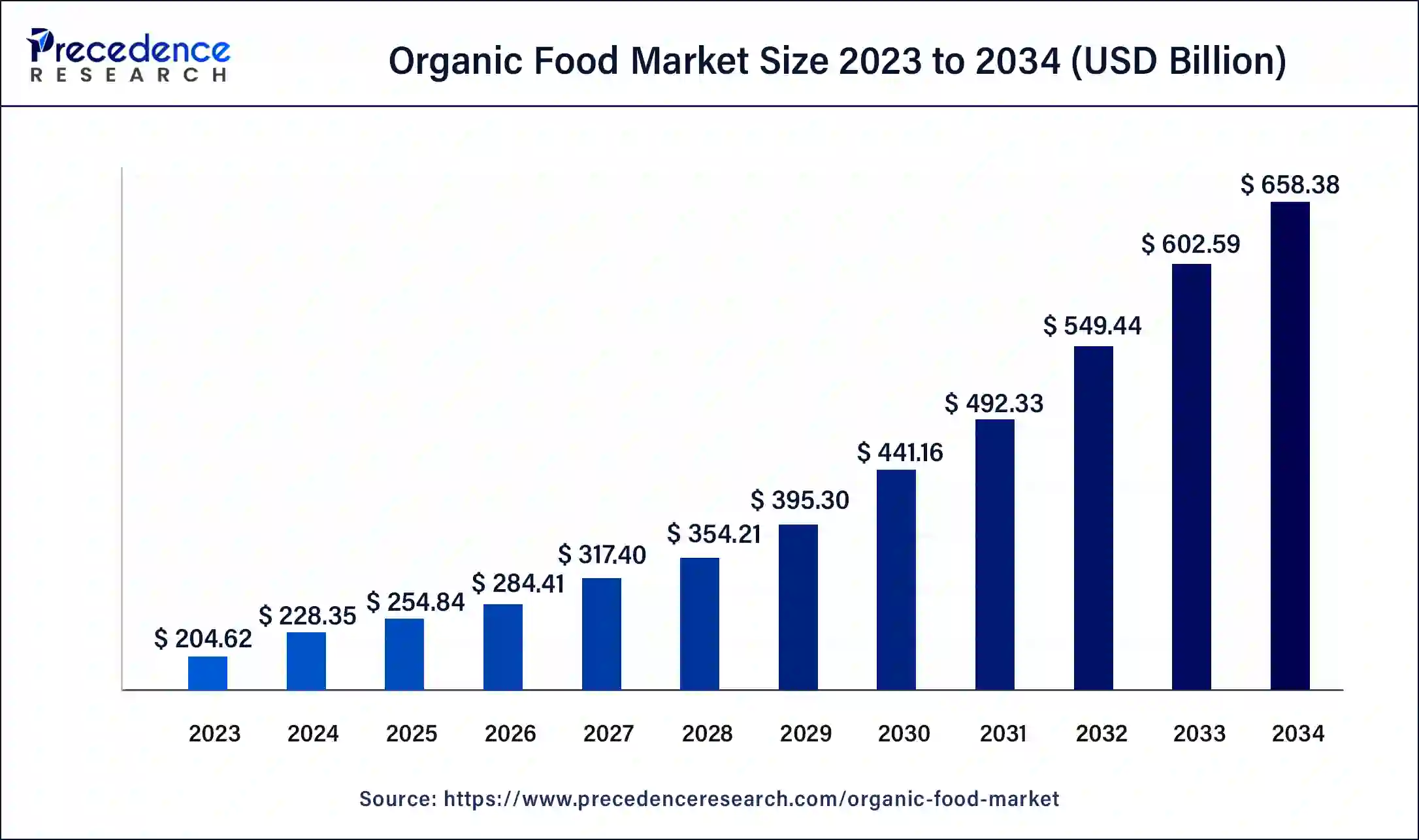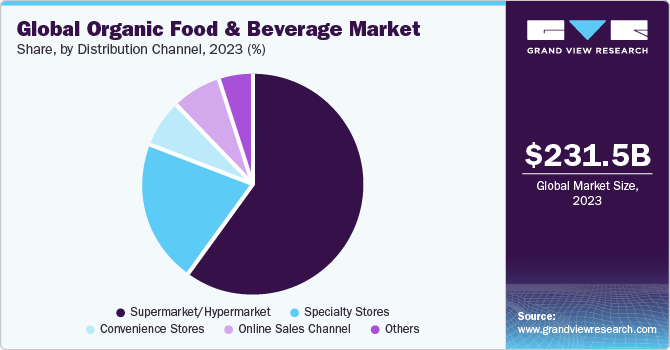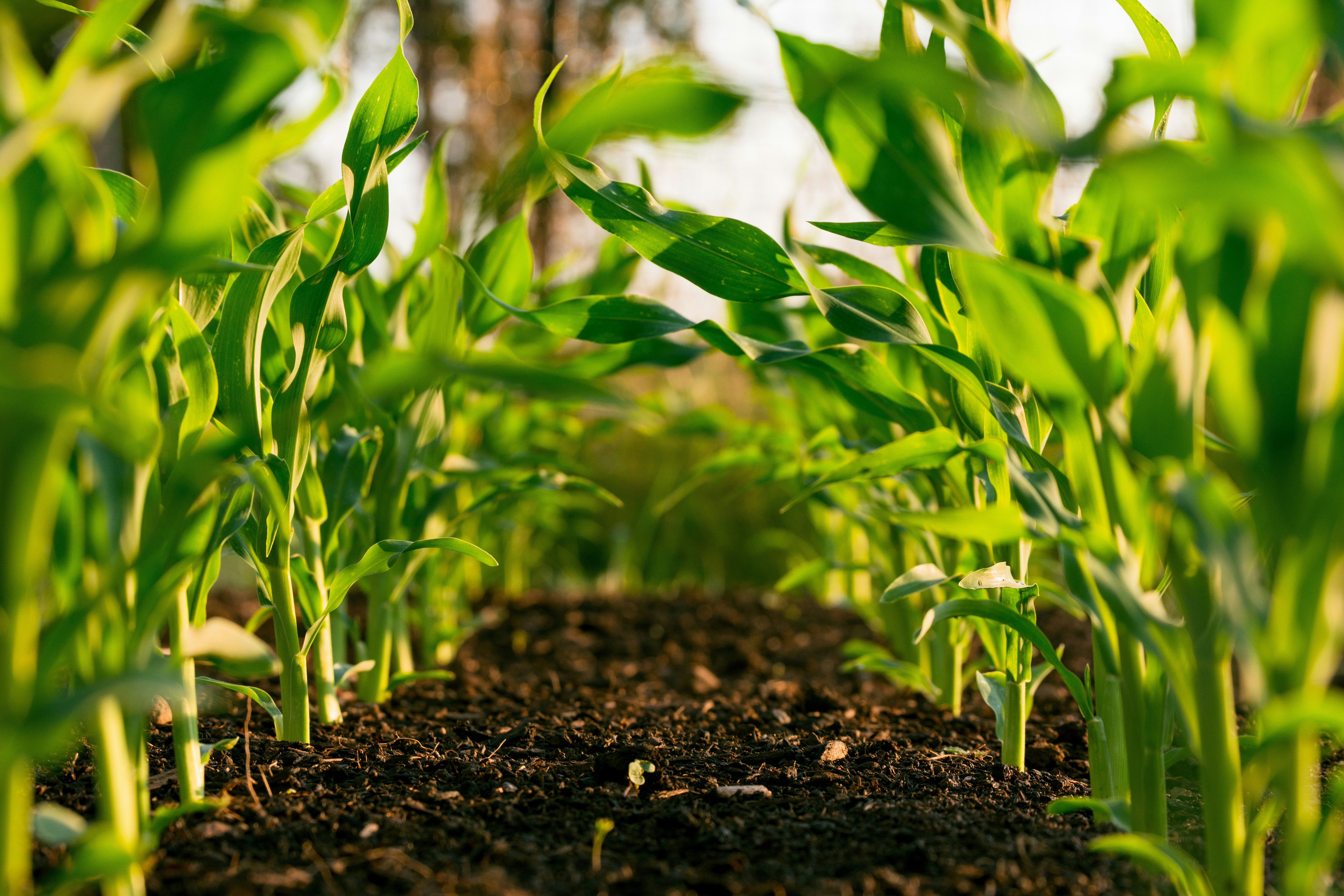
Market Growth and Consumer Behavior
The global organic food and beverages market was valued at USD 231.52 billion in 2023, with an expected CAGR of 13.9% from 2024 to 2030. This growth is driven by increasing consumer awareness of health benefits and the rising demand for non-GMO and organic products. Organic products are becoming more accessible, now widely available in supermarkets, online platforms, and even fast-food chains, moving beyond niche outlets like farmers’ markets. Environmental concerns, such as the impact of conventional farming on soil degradation and water pollution, are driving consumers toward organic options, as organic farming emphasizes sustainability and ethical consumption.
Consumer Trends
There is increasing demand for organic fruits and vegetables, which accounted for 40.6% of the global revenues in 2023. Organic meat, fish, and poultry are expected to grow at the highest CAGR (15.8%). The organic beverages segment, particularly non-dairy alternatives and flavored tea and coffee, is poised for significant growth (CAGR of 17.1%).
Challenges in the Market
High costs of production, shorter shelf life, and premium pricing limit widespread adoption. The market is further challenged by limited product assortments and high packaging and logistics costs. Despite growing demand, premium pricing and limited consumer awareness about the benefits and availability of organic products pose challenges to market expansion.
Distribution and Retail Channels

Supermarkets and hypermarkets dominate the distribution of organic products, accounting for over 60% of sales in 2023. However, online retail is rapidly growing, with a projected CAGR of 15.2% due to increasing internet penetration and the rise of subscription-based organic produce services.
Implications for Fairr
Fairr, as an omnichannel marketplace for local and organic products, can leverage these trends by providing a platform for independent retailers and producers to reach consumers who prioritize health, sustainability, and ethical consumption. By addressing the premium pricing and awareness challenges, Fairr could play a key role in improving accessibility to high-quality organic products while supporting local economies and sustainable farming practices. The rising demand for organic fruits, vegetables, and non-dairy beverages aligns well with Fairr’s mission to offer a curated selection of eco-friendly and healthy products. The growing trend of online shopping for organic goods highlights the potential for Fairr to expand through digital platforms.

How Fairr addresses today’s market challenges
High Costs and Premium Pricing
Fairr supports local independent retailers and producers, helping reduce distribution and logistics costs that typically inflate prices. By connecting local suppliers directly to consumers, Fairr can offer more competitive pricing, making organic and local products more affordable and accessible. This approach helps bridge the gap for consumers who may find premium prices a barrier to purchasing organic products.
Limited Awareness and Product Availability
Fairr’s platform increases consumer awareness by showcasing a curated selection of local and organic products, making it easier for users to discover and purchase items that align with their values of health and sustainability. The marketplace provides a central hub for finding local products that are often difficult to locate in traditional supermarkets or online platforms.
Shorter Shelf Life and Distribution Challenges
By focusing on local products, Fairr reduces the need for long-distance transportation, which often shortens shelf life. With a localized distribution network, Fairr ensures that products reach consumers faster and fresher, addressing the challenge of perishability that organic products often face.
Seasonality and Limited Product Range
Fairr supports small and mid-sized producers, encouraging them to grow and diversify their offerings. This helps mitigate the issue of limited product availability and seasonality by broadening the variety of organic and eco-friendly products available through the platform.
Sustainability and Ethical Consumption
Fairr aligns itself with the growing consumer demand for environmentally responsible and ethically sourced products. By promoting local, organic farming and sustainable practices, the platform resonates with eco-conscious consumers, offering them a convenient way to make choices that reduce their carbon footprint and support local economies.
